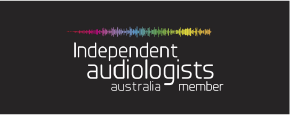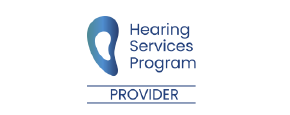Are you looking for a hearing test in Sandgate?
Are you having difficulty communicating? Our expert audiologists at Hearing Help can help improve your hearing clarity. Book your consultation today and reconnect with the sounds and people you love!
Hearing Test in Sandgate Brisbane
Are you looking for Hearing Test in Rothwell Brisbane? We are conveniently located within the Newport Physio and Health clinic at Newport Marketplace. Our dedicated team of audiologists provides comprehensive hearing tests to address unique individual hearing needs. As an independent clinic, we offer unbiased advice and access to a wide range of products tailored to client needs. Regular hearing tests are crucial for detecting potential problems early, preventing strained relationships and social isolation, and reducing risks of untreated hearing loss. Our team utilises the latest technology and evidence-based practices for diagnosis and management. To understand the importance of hearing health, what to expect during a hearing test, and how we can help, explore further.
About Hearing Help
Established to address the growing need for expert audiological services, Hearing Help has been providing top-notch hearing solutions and unmatched patient care to the Sandgate community in Brisbane. Our clinic is staffed by a dedicated team of audiologists and support personnel who are passionate about delivering exceptional service and care to our patients. We utilise the latest technology and evidence-based practices to diagnose and manage a wide range of hearing and ear-related conditions.
At Hearing Help, we understand the impact that hearing loss can have on an individual’s quality of life. Our services are designed to provide personalised solutions that cater to each patient’s unique needs and circumstances. We offer comprehensive hearing assessments, hearing aid fittings, and ongoing support and maintenance to ensure optimal outcomes for our patients. Our goal is to empower individuals with hearing loss to reconnect with their loved ones, engage with their community, and live life to the fullest.
Why Choose Hearing Help?
Hearing Help in Newport 4020 offers comprehensive and client-centred hearing services, prioritising genuine care and “Best Practices” in audiology. They provide services such as hearing tests for adults and children, tinnitus assessments, auditory processing assessments, ear plugs, and hearing aid fittings for adults. As an independent clinic, not owned by a large international hearing aid company, they have access to a wider range of products and offer unbiased advice based on the client’s needs and goals.
Importance of hearing health and regular hearing tests
Maintaining good hearing health is crucial for overall well-being, as it plays a significant role in our ability to communicate effectively and engage with our surroundings. Regular hearing tests are essential to monitor hearing levels, detect any potential problems early, and prevent further deterioration. Even mild hearing loss can impact daily life, straining relationships and increasing the risk of social isolation, depression, and cognitive decline. Moreover, untreated hearing loss can also affect overall health, as it has been linked to an increased risk of falls, cardiovascular disease, and dementia. By scheduling regular hearing tests, individuals can identify and address hearing issues promptly, ensuring timely interventions and improving their quality of life. In Sandgate, Brisbane, residents can prioritise their hearing health by accessing professional hearing tests and expert advice from qualified audiologists.
What is a Hearing Test?
Conducted by an audiologist, a comprehensive hearing test, also known as an audiogram, is a thorough evaluation that assesses an individual’s ability to detect and process different sounds and frequencies. This assessment is crucial in identifying any potential hearing problems, determining the underlying causes, and recommending suitable treatment options. A comprehensive hearing test typically involves a series of tests and evaluations, including a review of the individual’s medical history, a visual examination of the ear canal and eardrum, and a series of auditory tests.
The results of the hearing test are then used to create an audiogram, which is a graphical representation of the individual’s hearing thresholds. This information is essential in diagnosing and managing hearing loss, as well as monitoring any changes in hearing over time. By undergoing a comprehensive hearing test, individuals can take the first step towards addressing any hearing-related issues and improving their overall quality of life. Regular hearing tests are also important for maintaining good hearing health and preventing potential problems.
Types of Hearing Tests
A range of assessments are employed by audiologists to evaluate an individual’s hearing abilities, including behavioral, physiological, and electrophysiological testing methods. Behavioral tests, such as pure-tone audiometry and speech audiometry, involve the active participation of the individual being tested, requiring them to respond to sounds or speech. Physiological tests, including otoacoustic emissions testing and tympanometry, assess the natural physiological responses of the ear to sound.

Electrophysiological tests, such as the auditory brainstem response (ABR) and cortical auditory evoked potential (CAEP) testing, measure the electrical activity of the auditory system in response to sound. These assessments enable audiologists to identify and diagnose hearing impairments, as well as monitor auditory function over time. In some cases, specialised testing, such as balance assessments or auditory processing evaluations, may be conducted to address specific concerns or symptoms. By combining the results of multiple assessments, audiologists can develop a comprehensive understanding of an individual’s auditory abilities and provide informed recommendations for management and treatment. This comprehensive approach ensures accurate diagnoses and effective rehabilitation plans.
Preparing for Your Hearing Test
To ensure a smooth and effective hearing test experience, it is essential to be well-prepared. In this section, we will outline what to expect during your visit, describe the process from arrival to completion, and provide guidance on how to prepare for a typical hearing test. By understanding the process and duration of a hearing test, you can feel more comfortable and confident as you take this important step towards addressing any hearing concerns.
What to Expect
Your appointment will begin with a thorough consultation to discuss your hearing concerns and medical history, allowing our audiologists to tailor the hearing test to your specific needs. This initial discussion is essential in identifying potential underlying causes of hearing loss and ensures that the hearing test is adapted to address your unique situation. Our audiologists will ask you about your hearing difficulties, such as trouble hearing in noise or understanding conversations, as well as any medical conditions that may be contributing to your hearing loss.
It is essential to be open and honest about your hearing experiences, as this information will help our audiologists to create a personalised assessment plan. This plan will enable them to accurately assess your hearing abilities and make informed recommendations for treatment or further testing if needed. By working together, we can ensure that your hearing test is comprehensive, accurate, and beneficial in addressing your hearing health concerns.
Description of the process from arrival to completion
Upon arrival at our hearing clinic, several key steps will be undertaken to ensure a comprehensive and streamlined hearing test process. You will be greeted by our friendly reception staff, who will ask you to complete a brief questionnaire to provide us with some essential information about your hearing and medical history. This information will assist our audiologists in tailoring the test process to your specific needs.
Next, you will be introduced to your audiologist, who will explain the test process in detail and answer any questions you may have. They will then conduct a visual examination of your ear canal and eardrum using an otoscope to check for any abnormalities. Following this, you will be seated in a soundproof room where the hearing test will be conducted. Our state-of-the-art equipment will be used to assess your hearing thresholds, and you will be asked to respond to a series of sounds and words. The results of these tests will provide us with a comprehensive understanding of your hearing abilities, enabling us to provide personalised recommendations for any necessary treatment.
Duration of a typical hearing test
In preparation for your hearing test, it is essential to allow approximately 30-60 minutes for the entire process, which includes a comprehensive evaluation and discussion of the results. This timeframe enables our audiologists to conduct a thorough examination, assess your hearing capabilities, and provide personalised recommendations.
The duration of a typical hearing test can vary depending on the individual’s specific needs and the complexity of the assessment. In general, the evaluation process can be broken down into several components, including a review of your medical history, a visual examination of your ear canal and eardrum, and a series of auditory tests. These tests are designed to assess your ability to hear different frequencies, understand speech, and detect sounds in various environments.
Our experienced audiologists will guide you through each step of the process, ensuring that you feel comfortable and informed throughout the evaluation. By allocating sufficient time for your hearing test, we can provide you with accurate results and tailored recommendations to address any hearing concerns you may have. This comprehensive approach enables us to deliver exceptional care and support for your hearing health.
Tips for preparing for a hearing test
Preparation is key to ensuring a thorough and accurate hearing evaluation, and there are several steps you can take to prepare for your upcoming hearing test. Prior to your appointment, it’s essential to gather information about your medical history, including any previous ear problems, surgeries, or medications that may affect your hearing.
Additionally, consider writing down any questions or concerns you have about your hearing, such as difficulties you experience in specific situations or environments. This information will help your audiologist understand your unique needs and tailor the evaluation accordingly.
On the day of the test, arrive 15 minutes early to complete any necessary paperwork. Bring a friend or family member for support, if desired. Remove any earwax, earrings, or other obstructions from your ears to ensure accurate test results. Avoid loud noises for at least 24 hours before the test, as they may temporarily affect your hearing. By taking these preparatory steps, you’ll be able to get the most out of your hearing evaluation and ensure accurate results.
The Hearing Test Procedure
The hearing test procedure at our hearing clinic begins with an initial consultation, where you will meet with an experienced audiologist to discuss your symptoms and concerns. During this consultation, your audiologist will also take a comprehensive medical history to better understand your overall health and identify any potential underlying causes of your hearing issues. This thorough discussion will inform the selection of tests to be conducted, ensuring a personalised and accurate assessment of your hearing.
Initial Consultation
During your initial consultation at our hearing clinic, a comprehensive hearing test is conducted to assess your hearing abilities and identify any potential issues. This assessment is crucial in understanding the intricacies of your auditory system and forms the basis for any subsequent treatment recommendations. The test itself involves a series of evaluations, each designed to measure a different aspect of your hearing.
These evaluations may include pure-tone audiometry, which assesses your ability to hear different frequencies; speech audiometry, which examines your ability to understand speech in various conditions; and tympanometry, which tests the function of your middle ear. Additionally, acoustic reflex testing may be conducted to assess the reflexes of your middle ear muscles. Each of these tests provides valuable information about your hearing capabilities and potential issues. The results from these assessments are then interpreted by our audiologists, who will use this data to guide the next steps in your care.
Discussion with an audiologist about symptoms and medical history
Following the comprehensive hearing test, a thorough discussion with an audiologist about your symptoms and medical history is conducted to gather a more complete understanding of your auditory health and to inform the interpretation of your test results. This discussion enables the audiologist to contextualise the data obtained from the hearing tests, giving a comprehensive understanding of your auditory system.
During this discussion, the audiologist will ask specific questions related to your otological and medical history, including any previous exposure to loud noises, ear surgery, or treatment for ear problems. They will also inquire about the symptoms you are experiencing, such as difficulty hearing in certain situations, ear pain, or ringing in the ears. This dialogue allows the audiologist to gain insight into any potential underlying conditions that may be influencing your hearing. The audiologist will also explore the impact of hearing loss on your daily life and social interactions, further understanding your individual needs and challenges.
Conducting the Tests
A series of non-invasive tests is administered in a soundproof room to assess various aspects of auditory function and accurately diagnose hearing loss. The tests are designed to evaluate an individual’s ability to detect and process different sounds and frequencies. Pure-tone audiometry, for instance, measures the softest sounds that can be heard at various frequencies, while speech audiometry assesses the ability to understand speech in different environments.
Tympanometry may also be conducted to examine the middle ear’s functionality and mobility of the eardrum and the conduction bones. Acoustic reflex testing evaluates the reflexive response of the middle ear muscles in response to loud sounds. Otoacoustic emission testing assesses the inner ear’s ability to produce sound, which is essential for normal hearing. These tests are carefully selected and conducted by an experienced audiologist to ensure accurate results. The entire process typically takes about 30-60 minutes, depending on the individual’s specific needs and the complexity of the tests required. By combining the results of these tests, a comprehensive picture of an individual’s hearing health can be gained, allowing for effective diagnosis and treatment planning.
Post-Test Consultation
Following the completion of the hearing test, a comprehensive post-test consultation is conducted to discuss the results and their implications. During this consultation, the audiologist will outline treatment options and provide personalised recommendations to address any identified hearing concerns. Additionally, the audiologist will work with the individual to schedule follow-up appointments, as necessary, to monitor progress and adjust the treatment plan accordingly.
Treatment Options and Recommendations
The post-test consultation is a crucial step in the hearing assessment process, where your audiologist will carefully review your results and discuss the most suitable treatment options and recommendations tailored to your specific hearing needs. Based on the assessment, your audiologist may recommend various treatment options such as hearing aids, auditory therapy, or medical treatment. They will take the time to explain the advantages and disadvantages of each option, addressing any concerns you may have.
If hearing aids are recommended, your audiologist will discuss different types and styles, as well as assistive listening devices that can enhance their performance. They will also provide guidance on how to use and care for your hearing aids, ensuring optimal performance and comfort. For some conditions, such as earwax buildup or middle ear infections, medical treatment may be necessary, and your audiologist will refer you to a primary care physician or specialist as needed. Your audiologist will work with you to develop a personalised treatment plan that meets your unique hearing needs and enhances your communication abilities.
Scheduling Follow-Up Appointments
Regular follow-up appointments are an essential part of the post-test consultation process, allowing your audiologist to monitor your progress, adjust treatment plans as needed, and ensure optimal results from your hearing assessment and recommended treatments. These appointments also provide an opportunity for patients to ask questions, address concerns, and express any challenges they may be experiencing with their treatment. By scheduling regular follow-ups, patients can ensure they are getting the most out of their hearing health care.
We understand the importance of follow-up appointments in maintaining optimal hearing health. Our audiologists work closely with patients to schedule appointments that fit their needs and schedules. During these appointments, we assess treatment efficacy, make adjustments as needed, and provide ongoing education and support to ensure patients achieve the best possible outcomes. By prioritising follow-up care, patients can enjoy improved hearing, enhanced communication, and a better overall quality of life.
Book an appointment
Ready to hear the world more clearly? Contact Hearing Help today to schedule your personalised hearing consultation. Call us or visit our website to find your path to better hearing. We’re here to help you connect with every sound life has to offer.
Address: Newport Marketplace Shopping Centre
Tenancy M01, 10 Lakeview Promenade, Newport QLD 4020
(located inside Newport Physio rooms)
Phone: 07 3214 3641
Email: hello@hearinghelpredcliffe.com.au










